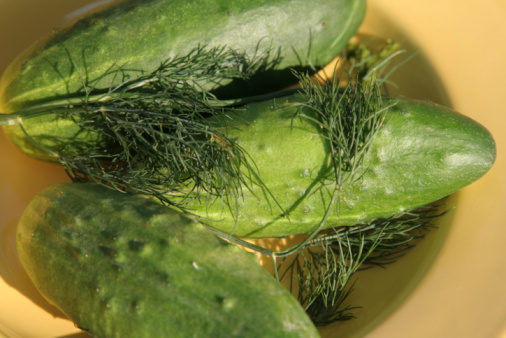
WholeFoods Magazine
Fermenting to Health

Whether vegetable-based, fruit-based, bean-based, or dairy-based, fermentation is popping up as the latest trend on the health food counter.
While the idea of fermenting foods (such as pickles and sauerkraut) and probiotics have long been established in ancient culinary traditions, the connection between them hasn’t been clearly illustrated. In fact, most American consumers don’t even know what probiotics are, why they are advantageous for our bodies and what are the best sources.
Probiotics help to maintain the natural balance of organisms in the intestines. They also exist in the human digestive tract and in foods such as dairy, fruit and vegetables. In the intestines, the lactic acid produced by these bacteria help to promote a favorable acidic pH profile that reduces the growth of some non-healthful bacteria and aids the absorption of protein and several minerals that are good for us.
While supplements are often used as a source of probiotics, whole foods are also a healthy way to absorb the nourishment that probiotics provide. Fermented foods, in particular, are a great way to feed your body with healthy bacteria.
For ages, cultures around the world have been fermenting foods to preserve them for long periods of time. What people eventually found out is that by fermenting many of their foods, the carbohydrates and sugars turn into a helpful acid or alcohol, and in turn, become alive with probiotics.
There are many well-known fermented foods, including beer, yogurt and kimchi. Some of the best fermented foods that contain probiotics include pickles, sauerkraut and perhaps surprisingly, soy sauce. Most soy sauce is made commercially and aged for about six months, which means it doesn’t possess the same benefits that more traditional soy sauces do. For example, a high-end soy sauce like Ohsawa's Nama Shoyu is made by harvesting organic whole soybeans and Japanese spring water for two full summer seasons in nearly 200-year-old cedar kegs. By aging the soy sauce for a longer period of time, the amount of healthy bacteria is increased and the marriage of fermentation and probiotics comes full circle.
Sauerkraut is another food making a surprising move from cooking and BBQ condiment to healthy recipes. Gold Mine Natural reports that their raw sauerkraut is being used in gourmet recipes as a healthy ingredient.
Steve Leibowitz at Guss’ Pickles told me that he’s seen an increase in sales with all the buzz about the health benefits of pickles which must be fermented to be pickles. The actual benefit of fermented pickles is that they are natural, good for the digestion system and contain agents that help neutralize stomach acids. The key, however, is to make sure they are naturally fermented without chemicals.
Most whole food retailers are already selling these fermented staples, but by promoting the health benefits of fermented foods on the shelf, in a special section, at events or at point of purchase, they can help raise awareness and in turn capitalize on the trend of eating fermented foods for better health.
 Nancy Trent is a writer and speaker, a lifelong health nut, a globe-trotting trend watcher and the founder and president of Trent & Company, a New York-based marketing communications firm. Trent & Company grew out of Nancy’s personal commitment to helping people live longer and healthier lives. A former journalist for New York magazine, Nancy has written seven books on healthy lifestyles, serves on the editorial boards of several magazines and travels around the world speaking at conferences and trade shows on trends in the marketplace. She is a recognized expert in PR with more than 20 years of experience creating and managing highly successful campaigns. Nancy can be reached at (212) 966-0024 or through e-mail at nancy@trentandcompany.com. You may also visit www.trentandcompany.com.
Nancy Trent is a writer and speaker, a lifelong health nut, a globe-trotting trend watcher and the founder and president of Trent & Company, a New York-based marketing communications firm. Trent & Company grew out of Nancy’s personal commitment to helping people live longer and healthier lives. A former journalist for New York magazine, Nancy has written seven books on healthy lifestyles, serves on the editorial boards of several magazines and travels around the world speaking at conferences and trade shows on trends in the marketplace. She is a recognized expert in PR with more than 20 years of experience creating and managing highly successful campaigns. Nancy can be reached at (212) 966-0024 or through e-mail at nancy@trentandcompany.com. You may also visit www.trentandcompany.com.
Published online August 9, 2010.








